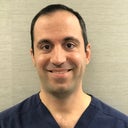Thank you for your question. You state you had cheek implants removed after 1 month due to infection in both of them. You state it’s rare for this to occur, so you’re concerned about whether or not you have some underlying issue with your body’s defense, and you’re looking for some explanation. You also say you’re falling into depression about this event.




